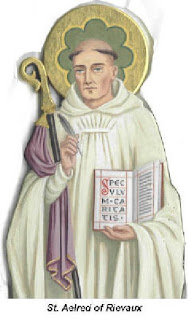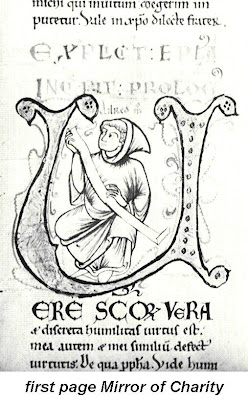Who
Is This Jesus?
Benedict
XVI Reflects on News of the Birth of Christ
VATICAN CITY, JAN. 6, 2011 (Zenit.org).- Before the
arrival of the Wise Men to the Bethlehem cave, the birth of the Son of God was
known to only a few family members and some poor shepherds. With the visit of
the Magi, however, the question of Jesus' identity began to spread.
This was the reflection made today by Benedict XVI when he
addressed crowds gathered in St. Peter's Square to pray with him the midday
Angelus on this feast of the Epiphany.
"In fact, before the arrival of the Magi, knowledge of this
event was little known beyond the family circle: In addition to Mary and
Joseph, and probably other relatives, it was known by the shepherds of
Bethlehem, who, hearing the joyful announcement, went to see the baby while he
was still lying in the manger," the Pope noted.
Hence, the Holy Father said, "the coming of the Messiah,
awaited by the people as foretold by the prophets, remained thus initially in
concealment."
When the Wise Men visited Herod with their question about the
birthplace of the newborn King of the Jews, it was then that news of this birth
began to spread.
"The coming and the adoration of the Magi is the first sign
of the singular identity of the son of God, who is also son of the Virgin
Mary," the Pontiff
noted. "From now on the question began to be propagated that would accompany
the whole life of Christ, and which in different ways goes across the
centuries: Who is this Jesus?"
Proposing this question to the hearts of men is the mission of the
Church, Benedict XVI suggested.
"This," he said, "is the spiritual longing that
drives the mission of the Church: to make Jesus known, his Gospel, so that
every man can discover in his human face the face of God, and be illumined by
his mystery of love."
Like the star
The Pope further reflected that Epiphany also indicates how the
Church is to carry out its mission: "reflecting the light of Christ and
proclaiming his Word."
"Christians,"
he said, "are called to imitate the service that the star gave the Magi.
We must shine as children of the light, to attract all to the beauty of the
Kingdom of God. And to all those who seek truth, we must offer the Word of God,
which leads to recognizing in Jesus 'the true God and eternal life.'"
In this context, the Pontiff spoke of a "profound gratitude
to Mary."
"She is the perfect image of the Church which gives the world
the light of Christ," he said. "She is the Star of evangelization.
'Respice Stellam,' St. Bernard says to us: Look at the Star, you who go in
search of truth and peace; turn your gaze to Mary, and she will show you Jesus,
light for every man and for all peoples."
Missionary children
Benedict XVI also mentioned the Missionary Day of Children,
celebrated on the feast of the Epiphany.
"So many children and youngsters, organized in parishes and
schools, form a spiritual and solidaristic network to help their contemporaries
in greatest difficulty," he said. "It is very beautiful and important
that children grow with a mentality open to the world, with sentiments of love
and fraternity, overcoming egoism and consumerism.
"Dear children and youngsters, with your prayer and your
commitment you collaborate with the mission of the Church. I thank you for this
and I bless you!"
--- --- ---
On ZENIT's Web page:
+ + +
On ZENIT's Web page:
Full text:
www.zenit.org/article-31368?l=english The Magi Show Us the Way to God, Says Pope
Highlights Word of God as the True Guiding Star
Benedict XVI's Homily
for Feast of Three Kings
"They Were Men
'in Search' of Something More"
VATICAN CITY, JAN. 6, 2011 (Zenit.org).- Here is the
homily Benedict XVI delivered today, the solemnity of the Epiphany of the Lord,
during the Mass he presided over in St. Peter's Basilica.
Dear Brothers and Sisters,
During the solemnity of the Epiphany the Church continues to contemplate
and to celebrate the mystery of the birth of Jesus the Savior. In particular,
today's feast underlines the destiny and universal meaning of this birth.
Becoming man in the womb of Mary, the Son of God came not only for the people
of Israel, represented by the shepherds of Bethlehem, but also for the whole of
humanity, represented by the Magi. And it is precisely on the Magi and on their
journey in search of the Messiah (cf. Matthew
2:1-12) that the Church invites us today to meditate and to pray. In the Gospel we heard that they, arriving in
Jerusalem from the East, asked: "Where
is he who is born, the king of the Jews? We saw his star arise and we have come
to adore him" (v. 2). What kind of persons were they and what kind of
star was that? They were probably wise men who scrutinized the sky but not to
try to "read" the future in the stars, eventually to extract some
gain; rather, they were men "in search" of something more, in search
of the true light, which would be able to indicate the way to follow in life.
They were persons who were certain that in creation there is what we could
define as the "signature" of God, a signature that man can and must
try to discover and decipher. Perhaps the way to know these Magi better and to
take up their desire to let themselves be guided by God's signs is to pause to
consider what they found, on their way, in the great city of Jerusalem.








